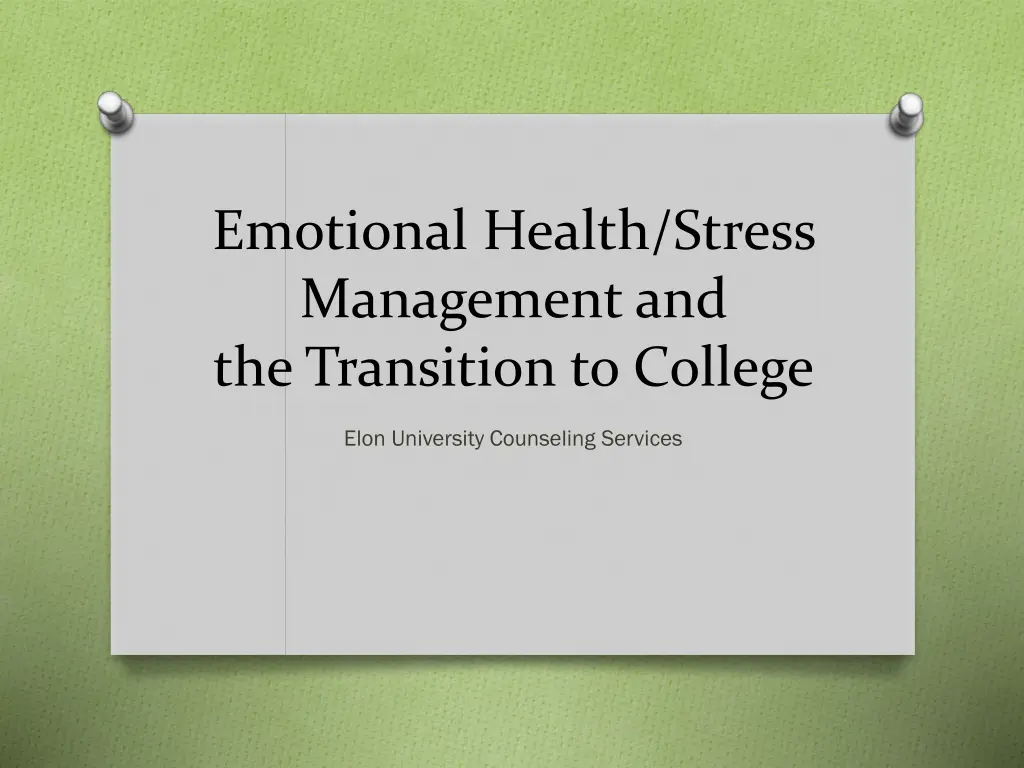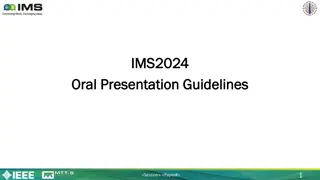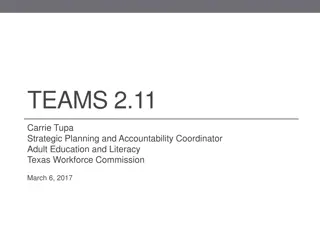
College Transition: Emotional Health, Stress Management & Support
"Explore the emotional challenges and stress management aspects of transitioning to college, along with practical ways to support both students and parents through the journey. Learn about managing expectations, handling sources of stress, and fostering communication during this crucial life transition."
Download Presentation

Please find below an Image/Link to download the presentation.
The content on the website is provided AS IS for your information and personal use only. It may not be sold, licensed, or shared on other websites without obtaining consent from the author. If you encounter any issues during the download, it is possible that the publisher has removed the file from their server.
You are allowed to download the files provided on this website for personal or commercial use, subject to the condition that they are used lawfully. All files are the property of their respective owners.
The content on the website is provided AS IS for your information and personal use only. It may not be sold, licensed, or shared on other websites without obtaining consent from the author.
E N D
Presentation Transcript
Emotional Health/Stress Management and the Transition to College Elon University Counseling Services
The Transition to College Transitioning to college marks an important milestone in life. It is a time for celebrating achievements and looking forward to new experiences. This is a time of significant change for students and their families that will bring with it excitement and stress.
Our Journey O Partnering with your student O Supporting your student O Learning along with your student O https://www.youtube.com/watch?v=eAvitID qB3w&t=201s
Sources of Stress For parents/family members: O Is my student ready? O Is the family ready for this change? O Can we afford this? O Will they have what they need? O How will I be able to let go? O Who will be there for them when I am not there?
Sources of Stress For students: O Am I ready? O Can my family afford this? O Will I fit in/find my people ? O How will I change? O What will be happening in life back home? O Will I make my parents proud? O Will I be successful?
Whats on your mind? O On one side of the card- write down particular concerns or worries you have about your or your student s college transition. O On the other side of the card- write down ways you feel proud and/or aspects of the college transition you are most looking forward to.
During college, you will engage in new experiences, explore greater personal freedom, and encounter challenges that will develop you academically and personally.
Managing Expectations Keeping in touch O Anticipate that you will miss each other O Consider what is reasonable for communication O Students- share your challenges and positive experiences O Parents- share what is happening back home and in your lives
Managing Expectations Letting go O Homesickness is normal but it is important to find ways to make connections at college O Let your student handle most of their problems and make their own decisions and mistakes. Listen, support, and guide - but resist the urge to be the helicopter parent O Learn about the resources on campus together and encourage your student to use them
Managing Expectations Grades O College is different than high school O Accept that the typical A/B student is likely to experience other letters of the grading system over the course of academic study
Managing Expectations Freedom and Responsibility O No wake up calls or curfew in college O Talk with your student about important issues (self-care, alcohol/drugs, safety) Changing and Building Relationships O Evolving Identity--Who are you now? O Keeping up with family and friends at home
Emotional Health O Common counseling concerns: Adjustment concerns/Homesickness Stress Anxiety Depression Relationship concerns Family Issues O 1 in 5 youth and young adults experiences a mental health condition O During college years is a time that mental health concerns are likely to present.
Emotional Health Common signs Common signs and symptoms of stress and symptoms of stress: O Persistent feelings of sadness or being withdrawn O Overwhelming fear or worry O Lack or energy or motivation O Difficulty making decisions O Feeling on edge O A change in eating habits O Sleeping more than usual or difficulty getting to sleep O Being more emotional O Using alcohol or drugs to relieve stress O Back pain or muscle tension O Tension headaches O Gastrointestinal problems (pain, diarrhea)
Emotional Health Emotional Health is as important as Physical Health. Identify the counseling resources are available on campus and how to access them O Where is the counseling center? Counseling Services in the Ellington Building at 301 S. O Kelly (the same place as Student Health) O What are the office hours? 8-5 Monday thru Friday O Who are the providers? 9 staff clinicians, and psychiatric services available. Staff bios on our website https://www.elon.edu/u/health- wellness/counseling-services/or search Counseling Services from Elon homepage O What after-hours or crisis response services are available? Counselor on Call available 24/7 for crisis response, call Campus Safety at 336- 278-5555 to be connected Other Campus Support O Who else can I contact? Student Care and Wellness will reach out to students to share helpful campus resources. Search Student Care and Wellness from Elon homepage O Elon Academy and Odyssey resources
Emotional Health If you are a loved one concerned your student is struggling: O Reach out. Express your concerns with your student. O Normalize and encourage students to ask for help. Keep an open dialogue about emotional health and well-being no throughout the college years O Contact University staff Excerpted from the JED Foundation . Starting the conversation: College and your mental health. August 2016






















